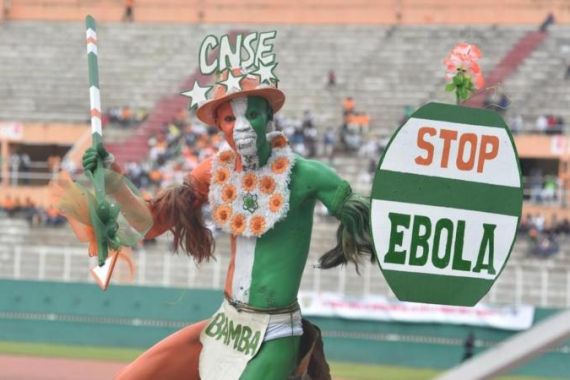Morocco refuses to host African Cup
The 16-team event faces uncertain future after Morocco’s withdrawal due to the spread of the Ebola virus in the region.

Morocco has refused to host January’s African Nations Cup amid fears over the spread of the Ebola virus, throwing the 2015 tournament into jeopardy.
The country, which had already said it wanted the 16-team event postponed, rejected an ultimatum set by the Confederation of African Football to confirm the hosting of the continental championship due to take place January 17-February 8.
Keep reading
list of 4 items‘Disgrace’: Ten Hag slams criticism over Man United’s FA Cup semifinal win
Inter win heated Milan derby to seal 20th Siere A title
Bellingham’s late El Clasico winner leaves Madrid with one hand on La Liga
The decision is dictated by health reasons because of the serious threat of Ebola and the risk of its spreading
A statement from Morocco’s sports ministry said: “The decision is dictated by health reasons because of the serious threat of Ebola and the risk of its spreading.”
A decision on the tournament will now be made next week when CAF has an executive committee meeting in Cairo but Morocco will almost certainly be stripped as hosts.
CAF said earlier on Saturday it would make no statement until after Tuesday’s meeting.
In addition to medical risks, the Moroccan government statement said the decision was “also motivated by humanitarian reasons since it is our responsibility to welcome all our guests and supporters in the best conditions in accordance with the culture and hospitality Moroccan traditions”.
Morocco is concerned that supporters from west Africa converging on the country for the tournament could bring with them the deadly virus and put at risk their important tourist industry.
They asked CAF to postpone the event to June, or even January 2016, but this was rejected last week by African football’s governing body, who set Morocco a deadline of Saturday to confirm it would host the three-week tournament.
CAF can now either move the event to another country – although it has had no public expression of interest from nations it approached to be on standby as possible emergency hosts – or cancel it at great financial cost.